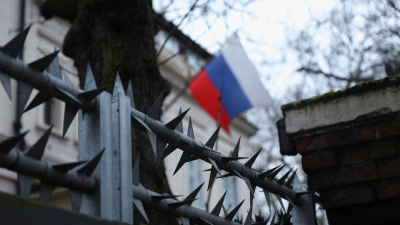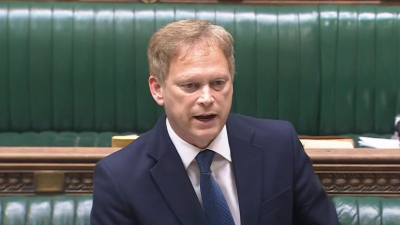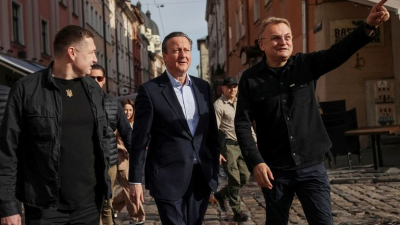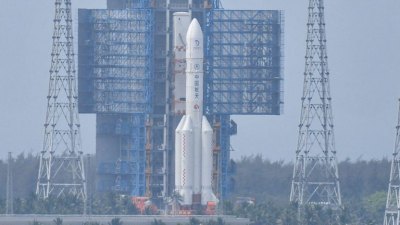Amidst a fiery clash between authorities and protesters, the streets of Georgia's capital, Tbilisi, became a battleground as police resorted to water cannons, tear gas, and stun grenades to quell dissent against a controversial bill targeting press freedoms. The proposed legislation, under debate in parliament, seeks to mandate media and non-commercial entities to register as influenced by foreign sources if they receive over 20% of their funding from abroad.
On Tuesday, a surge of demonstrators flooded Tbilisi's thoroughfares, denouncing the bill and its perceived threat to journalistic independence. However, their peaceful assembly swiftly escalated into chaotic scenes of confrontation with security forces. Reuters' eyewitnesses documented police officers physically assaulting protesters in response to projectiles hurled their way, prompting the deployment of aggressive dispersal tactics.
Despite the crackdown, the resilience of the protesters persisted, with thousands converging on Tbilisi's main Rustaveli Avenue, fortifying their position with makeshift barricades of cafe tables and refuse bins. Amidst the tumult, chants of "slaves" and "Russians" reverberated, reflecting the deep-seated grievances against perceived authoritarian measures.
In a harrowing testament to the intensity of the clashes, Levan Khabeishvili, leader of the United National Movement, Georgia's largest opposition party, emerged battered and bloodied, allegedly a victim of police brutality. His ordeal underscores the heavy-handed tactics employed against dissenting voices.
Expressing vehement opposition to the bill, Georgian President Salome Zourabichvili condemned the disproportionate crackdown, emphasizing the peaceful nature of the protests. Nevertheless, the political landscape remains deeply polarized, with the ruling Georgian Dream party at loggerheads with a coalition of opposition forces, civil society, and even cultural icons rallying against what they perceive as an authoritarian overreach.
Dubbed "the Russian law" by critics, the contentious bill draws parallels to Moscow's draconian "foreign agent" legislation, notorious for stifling dissent within its borders. As tensions simmer and divisions deepen, the fate of press freedoms in Georgia hangs in the balance, emblematic of the broader struggle for democratic values in the region.
Stay updated with Sky News: Tragedy strikes as boy perishes in bouncy castle mishap. University raid quells protest uproar. Don't miss out on Breaking News—Download the Sky News app for real-time updates!
Earlier this month, parliament gave its initial approval to the controversial bill, with two more readings standing between it and becoming law. Critics view the legislation as a stumbling block in Georgia's aspirations to join the European Union, a sentiment echoed by EU officials who warn of its potential to derail the country's path towards integration with the bloc.
In conclusion, the unfolding events in Georgia underscore a profound struggle for democracy and freedom of expression. As authorities press ahead with the contentious bill despite vehement opposition, the nation finds itself at a crossroads, torn between aspirations for European integration and concerns over the erosion of fundamental rights. The clashes between protesters and security forces serve as a poignant reminder of the high stakes involved, while the international community watches closely, weighing in on the implications for Georgia's future trajectory. Ultimately, the resolution of this crisis will not only shape the destiny of Georgia but also reverberate across the wider region, resonating with the timeless struggle for democratic values and human rights.







